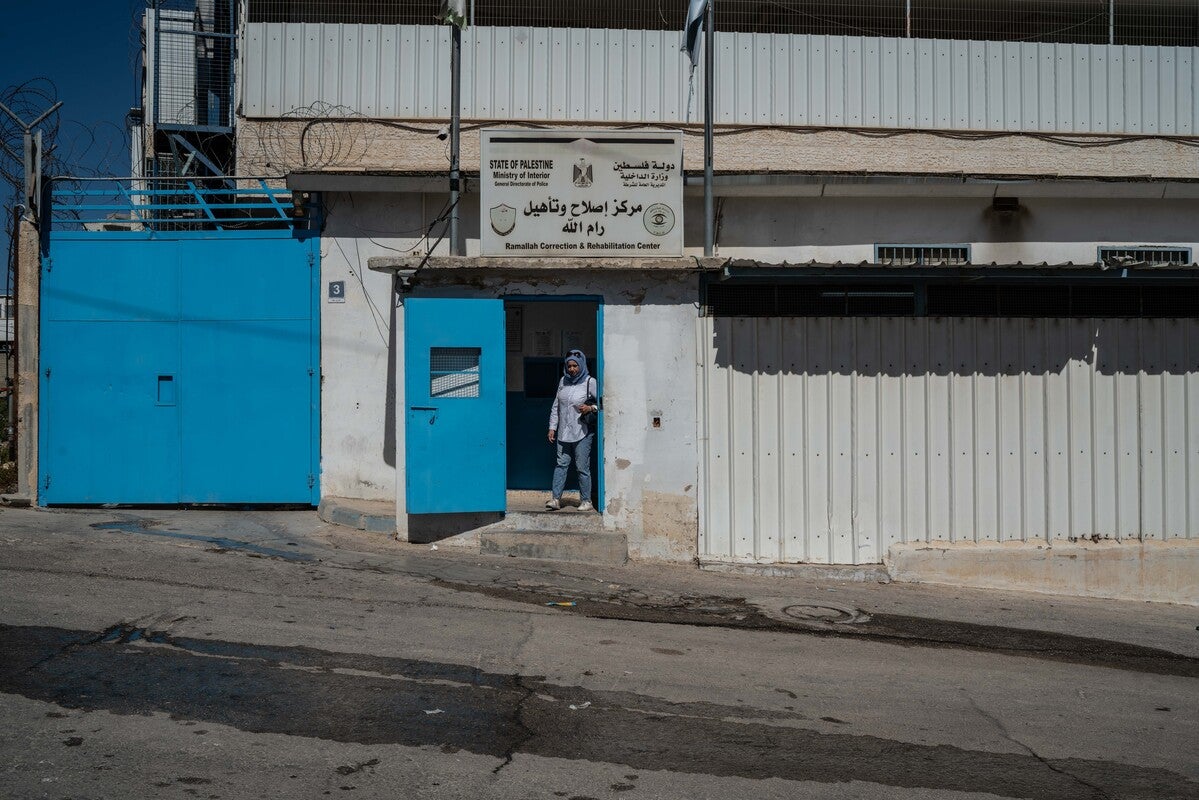Breaking Barriers and Building Bridges: Women Prison Counsellors Making a Difference in Inmates' Lives
Date:
Story originally published on UN Women Palestine‘s website.

Female inmates in the correction and rehabilitation centres of the West Bank are battling with their mental health due to the lack of strong family and community ties and the harsh realities of violence they have faced.
The Research, Planning, and Development Department of the Palestinian Police reported that in 2022 there are 197 women at these centres, including 80 convicted and 117 arrested women. However, only six women prison counsellors work with these female inmates which presents significant challenges for those counsellors.
To address these challenges, the Ministry of Social Development (MoSD) organized a specialized training programme for counsellors, with the support of the Sawasya Programme through UN Women Palestine.
The programme aimed to empower and strengthen the career prospects of counsellors, particularly in mental health when dealing with complex cases. These committed counsellors work closely with civil society organizations to enhance trial accessibility and offer crucial legal aid to women in need.
Behind Bars and Beyond: The Experiences of Women Prison Counsellors
Ruba Al-Barghouti, 34, with a bachelor’s degree in Sociology and a counsellor at a correctional and rehabilitation centre in Ramallah said “After 9 years of working in this field, I finally received a training that significantly enhanced my work methods and tools. The training focused on the concept of achieving justice for inmates in a comprehensive way and emphasized the importance of exploring alternatives to detention and advocating for their implementation.”
Hala Daibes, 58, specialized in social services and is in charge of the inmates’ care at Jenin Rehabilitation Centre, emphasized the importance of the rules of international treaties particularly the Mandela and Bangkok Rules when upholding the human rights and dignity of all inmates, especially female prisoners while upholding security standards: “During the training, I was able to effectively implement changes to the inspection process in negotiation with the management, with a particular emphasis on prioritizing the preservation of human rights and dignity for all inmates, particularly female prisoners, while also maintaining necessary security protocols.”
Maximizing Training Effectiveness: The Power of Tools
These dedicated professionals from MoSD acquired essential tools in mental health and well-being to effectively address the psychological impact of their work, particularly in the challenging context of the COVID-19 pandemic through training supported by UN Women. They are now equipped to navigate these effects with resilience and expertise to focus on their crucial work with inmates.
Hala shared a personal reflection on the issue of constantly being exposed to the risk of secondary stress resulting from the pressures or psychological traumas they face can lead to burnout and a decrease in their professional capacity to aid and support inmates “As a result of the supervision sessions, new tools and working methods were introduced in our work with inmates. These sessions and training have taught me to be more mindful of the language and tone I use when giving advice and to be more sensitive to the needs of the inmates. I even apologised to an inmate for my previous choice of words and provided targeted support without imposing personal judgments in a professional manner.”
Ruba also shared her experience “Following the training, I have successfully established clear professional boundaries with the inmates, allowing me to differentiate between my personal and work life without experiencing any sense of guilt. I now feel liberated since I have developed the skills to handle stress and exhaustion arising from work, and I have come to understand the significance of allowing professionals to intervene whenever the need arises."
The training programme has improved counsellors’ work methods and tools, providing new concepts to achieve justice for inmates, including exploring alternatives to penalties and presenting them to relevant authorities to ensure justice for inmates extends beyond detention.
Building a Bridge to a New Life: The Importance of Inmate Aftercare
In the post-release aftercare phase, women prison counsellors implement correctional programmes addressing inmates' needs, such as education, counselling, and healthcare, to prevent negative feelings and help them transition back into society.
Noor Al-Shandi, 43, specialized in social services, a women prison counsellor for children in conflict with the law and inmates in Nablus, emphasized the importance of preparing inmates for successful reintegration into society through social, economic, and psychological programmes. “Our goal is to enable women to benefit from their potential, capacities, and experiences by integrating them into community projects or helping them start their own small businesses, finding a place to live, and providing them with a decent life, which ultimately contributes to protecting their human rights.”
Female prison counsellors are taking crucial steps to support female inmates through specialized training, mental health support, and post-release aftercare programmes. By prioritizing the well-being and empowerment of female inmates, these counsellors are working to protect their human rights, enhance their access to justice, and prepare them for successful reintegration into society.
The "Capacity Building for Women's Rehabilitation and Reintegration Centres Counsellors" training is supported by UN Women through the joint programme "Sawasya II: Promoting the Rule of Law in the State of Palestine", a joint programme of the United Nations Development Programme, UN Women, and the United Nations Children's Fund (UNICEF), funded by the governments of the Netherlands, Sweden, the Spanish Agency for International Development Cooperation, and the European Union.
The counsellors of the rehabilitation and reintegration centres work under the Palestinian Ministry of Social Development. Their work is a result of the partnership of the Palestinian government with the justice and social security sectors and with the support of UN Women, to enhance the capacities of justice, security, and social institutions to integrate gender in their procedures and policies, and to develop and provide gender-responsive services to women victims and survivors of violence through institutional capacity building and policy interventions.